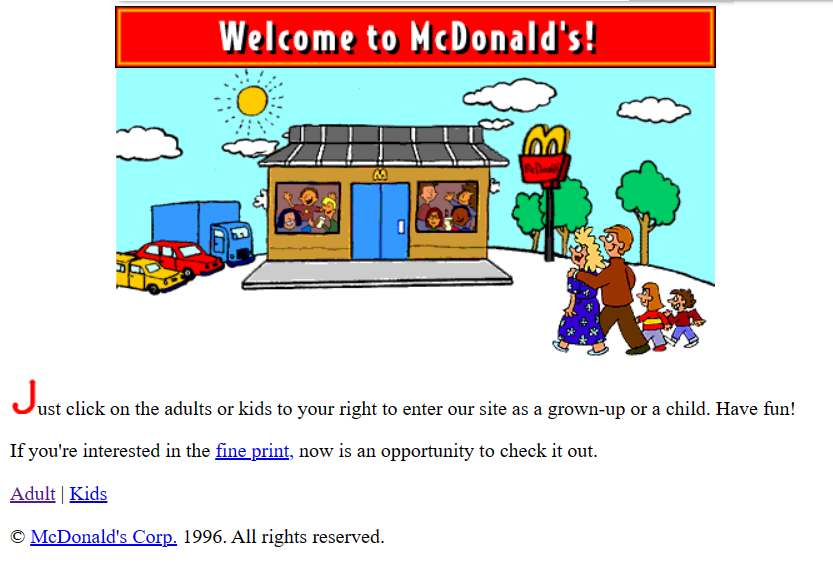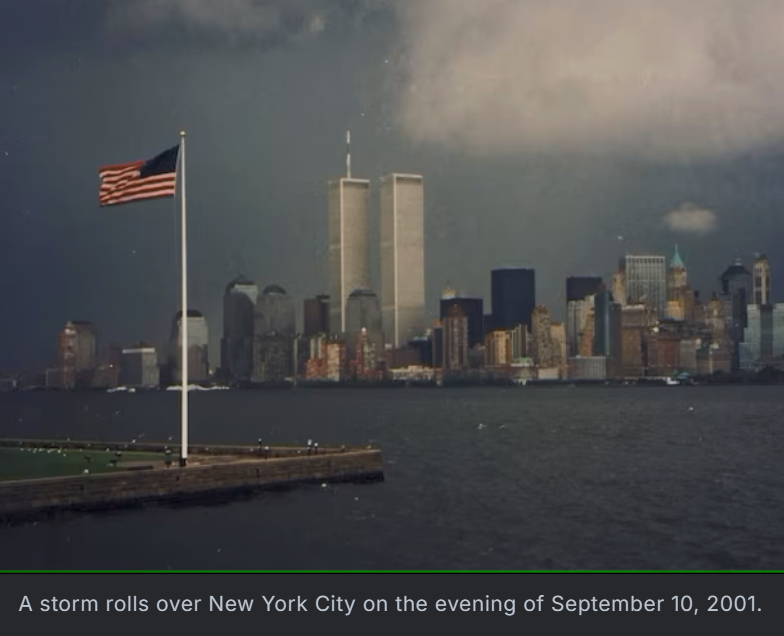Back in 1996, the internet was a cartoon McDonald’s website — blocky fonts, clip-art cars, childlike innocence. Then September 11th, 2001 shattered that world in a single morning. Airports turned into checkpoints, neighbors turned into suspects, and innocence turned into suspicion.
We were children with keyboards, suddenly forced into adulthood. Now, we scroll through a rage-machine internet, told to be “mindful,” while history keeps proving every now eventually feels like the worst we’ve ever lived through.
I allege the world is unhappy. I’m suspicious of anyone who looks too happy. There’s a malaise humming beneath everything. Maybe it’s because we all know how quickly someone can go from “somebody” to canceled, fired, divorced, or doxed. No pedestal is secure; tenure is a joke.
That uncertainty makes people sad. It also makes them afraid — not just of what tomorrow might bring, but of what yesterday might dredge up. Would you want your 18-year-old mouth to echo across a decade and get you fired? Exactly.
Some people call for a return to “normal.” I don’t think they mean pre-COVID or pre-Trump, though they’ll say that. What they really mean is pre-innocence lost. Before cities burned, before culture wars, before Russia invaded Ukraine, before we divided into tribes.
But if you want to understand how naïve we really were, consider this: here’s the original McDonald’s webpage from 1996. Cartoon cars, blocky fonts, “click Adult or Kids” as your two options. That was the state of our internet, and in many ways the state of our minds. Children had designed it because, in truth, we were children ourselves.
Here is the original webpage for McDonald's in 1996. This is where our minds were at, and this was our level of sophistication:

Then September 11, 2001 happened. And childhood ended.
We grew up fast, brutally. Airports became checkpoints. Homeland Security became a department. Cockpit doors sealed. Innocence vanished in smoke and falling steel. We turned suspicious — of strangers, of neighbors, of entire peoples we once ignored. CCTV cameras sprouted like weeds. We forfeited rights for the promise of safety. And a few years later, the iPhone arrived: our leash disguised as a toy.
Who were those people in 1996? They wore baggy jeans, drove boxy cars, and logged into websites that look like kindergarten drawings now. They were unprepared for what was coming, as unprepared as we were on September 10, 2001, when Newsweek headlines fretted over the Xbox and consumer spending. That was the last day we lived in innocence.
Since then, we’ve aged into cynicism. The internet matured too fast — from the pastel playpen of the ’90s into the rage-machine of 2023. Technology gave us connection but also overload, surveillance, cybercrime, and the gnawing sense that happiness is always slipping further out of reach.
We are told now to be “mindful.” To live in the present. To breathe and accept. And maybe that’s the best we can do. But history suggests every “now” eventually reveals itself as the worst moment we’ve ever lived through. The tent cities in America today are proof that some “nows” never end.
Happiness isn’t experienced. It’s remembered as such. And when it’s gone, we call it bliss.

